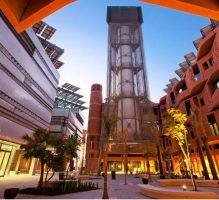September 19, 2016
London firms promote health and wellbeing with Square Mile Relay 0
 On the 22nd September, the biggest corporations in the City of London will compete in the iconic Bloomberg Square Mile Relay. The global race series, now in seven cities across the world, is celebrating its tenth anniversary in the capital with a record sell-out of 115 teams taking part in a unique relay in the heart of the square mile, as they attempt to prove themselves to be the fastest in the city. Each team consists of 10 runners, and each runner will be required to complete a one-mile course before passing the baton to the next competitor. While at the heart of this race is its charitable motives, it is also reflective of an ongoing rhetoric surrounding the importance of health and wellbeing in the workplace. The companies who have chosen to compete in this year’s global race series are communicating their desire for employees to embrace fitness as a lifestyle choice. It is a strategy in alignment with the ‘soft’ or ‘Harvard’ model of human resource management
On the 22nd September, the biggest corporations in the City of London will compete in the iconic Bloomberg Square Mile Relay. The global race series, now in seven cities across the world, is celebrating its tenth anniversary in the capital with a record sell-out of 115 teams taking part in a unique relay in the heart of the square mile, as they attempt to prove themselves to be the fastest in the city. Each team consists of 10 runners, and each runner will be required to complete a one-mile course before passing the baton to the next competitor. While at the heart of this race is its charitable motives, it is also reflective of an ongoing rhetoric surrounding the importance of health and wellbeing in the workplace. The companies who have chosen to compete in this year’s global race series are communicating their desire for employees to embrace fitness as a lifestyle choice. It is a strategy in alignment with the ‘soft’ or ‘Harvard’ model of human resource management





































